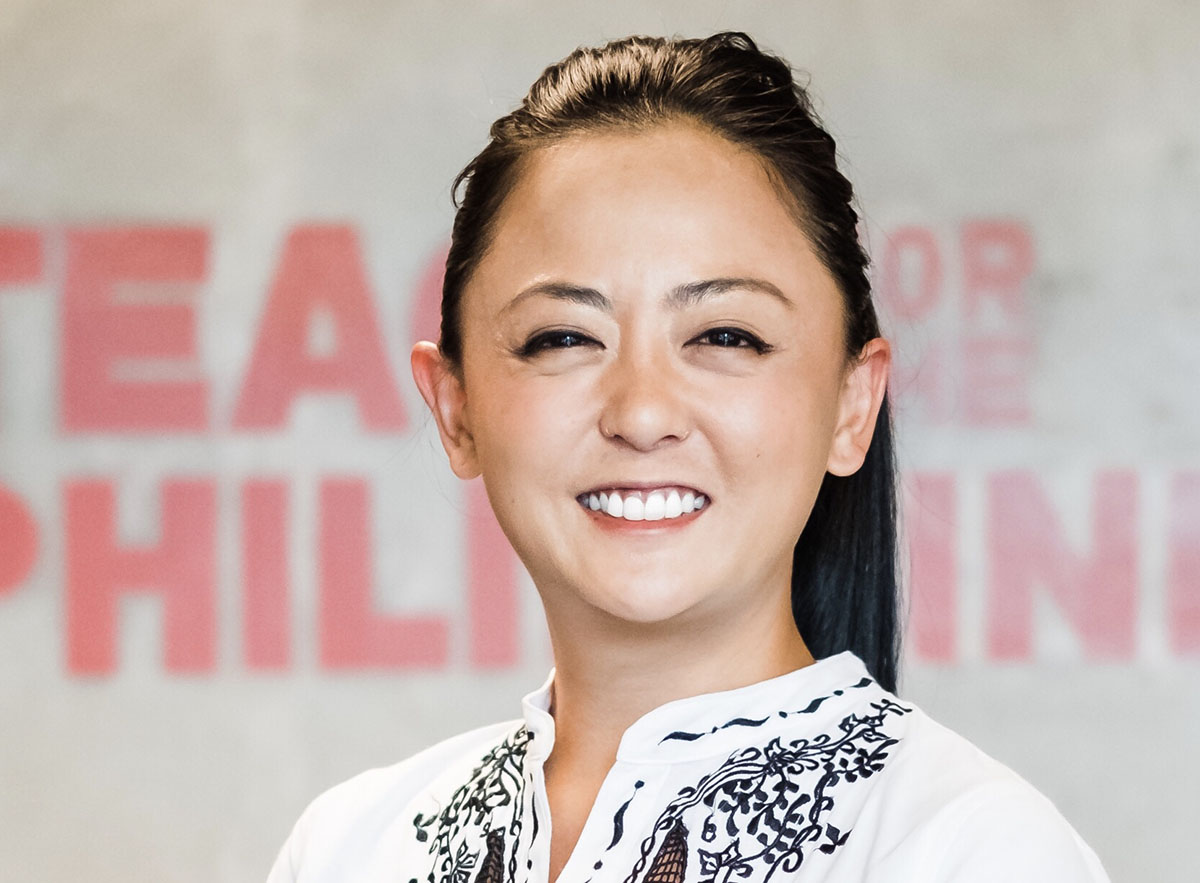Clarissa Delgado

The words “responsibility” and “stewardship” come up frequently as Clarissa Delgado ’04 discusses her work. As co-founder and chief executive officer of Teach for the Philippines, Delgado partners with her home country’s Department of Education to improve the quality of public education on the archipelago of 7,641 islands.
Over the past seven years, she and her team have developed and implemented teacher formation and coaching programs that have reached more than 300 teachers and almost 80,000 students. For her efforts, she has been recognized by numerous national and international organizations and, in 2018, was selected as one of 21 members of the inaugural class of Obama Foundation Fellows.
The 34-year-old believes her dedication to community service was first nurtured around the dinner table while she was growing up. “Dinner table conversation was about the responsibility you have if you have the privilege of being educated,” Delgado says.
Delgado jokes that her family members are community leaders with “a long history of not following instructions.” Her grandmother, a cardiologist, interrupted her college studies to become a guerrilla medic and captain of her unit during World War II. Her grandfather served in the war as an intelligence officer and then in peace-time as the Philippines’ ambassador to the Vatican.
Her mother participated in student protests against President Ferdinand Marcos in the 1970s and 1980s and in the 1990s established Sa Aklat Sisikat Foundation, a nonprofit organization focusing on functional literacy for fourth-grade students. Delgado likens her family to an inabel blanket, a traditional hand-loomed textile from the Ilocos region of the Philippines that she’s had on her bed since birth: Their lives are intertwined into a larger legacy, one that led her to Exeter, as well as her career.
In seventh grade, Delgado launched a vigorous campaign to attend boarding school in the U.S. like her Exonian cousins, Rashid Delgado ’95 and Zaki Delgado ’97. She got in to Exeter, but being so far from home was difficult. She was unfamiliar with American culture; had no family in the U.S., nor other Filipino students to empathize with; not to mention had never experienced New England winters. “It took most of my time at Exeter to feel like I fit in culturally,” she says. Exposure to Harkness learning, so different from her Asian education, ultimately inspired her, as did this tenet from Exeter’s mission: “Goodness without knowledge is weak and feeble, yet knowledge without goodness is dangerous.”
“I can recite that phrase by memory after over 16 years,” Delgado says. “It’s not enough to just ‘do good’ or ‘be smart.’ I want to live a life that’s in service to something bigger than me.”
Delgado received a bachelor’s degree in history and art history from the College of William & Mary, then started her career as a project manager with MIT’s Abdul Latif Jameel Poverty Action Lab and Sa Aklat Sisikat Foundation. There, she worked in conjunction with her mother’s literacy organization to measure its impact in the Philippines. In 2012, Sa Aklat Sisikat transitioned into Teach for the Philippines, and Delgado was named co-founder. She has subsequently completed her master’s degree in education from Ateneo de Manila University.
While her organization has seen its share of successes, Delgado feels there is more to do. Challenged by the country’s systemic poverty and diverse geography, she is focusing her work on wellness efforts, for students as well as educators, and on better understanding where relevant contemporary education fits in the context of the Philippines’ complex history.
Not surprisingly, Delgado attributes her success to others, the interwoven threads that create a collective pattern of connection. “I’m a sum of all these parts — my family, mentors, board and staff,” she says. “I’m very lucky.”
— Debbie Kane
Editor’s note: This article first appeared in the spring 2020 issue of The Exeter Bulletin.


